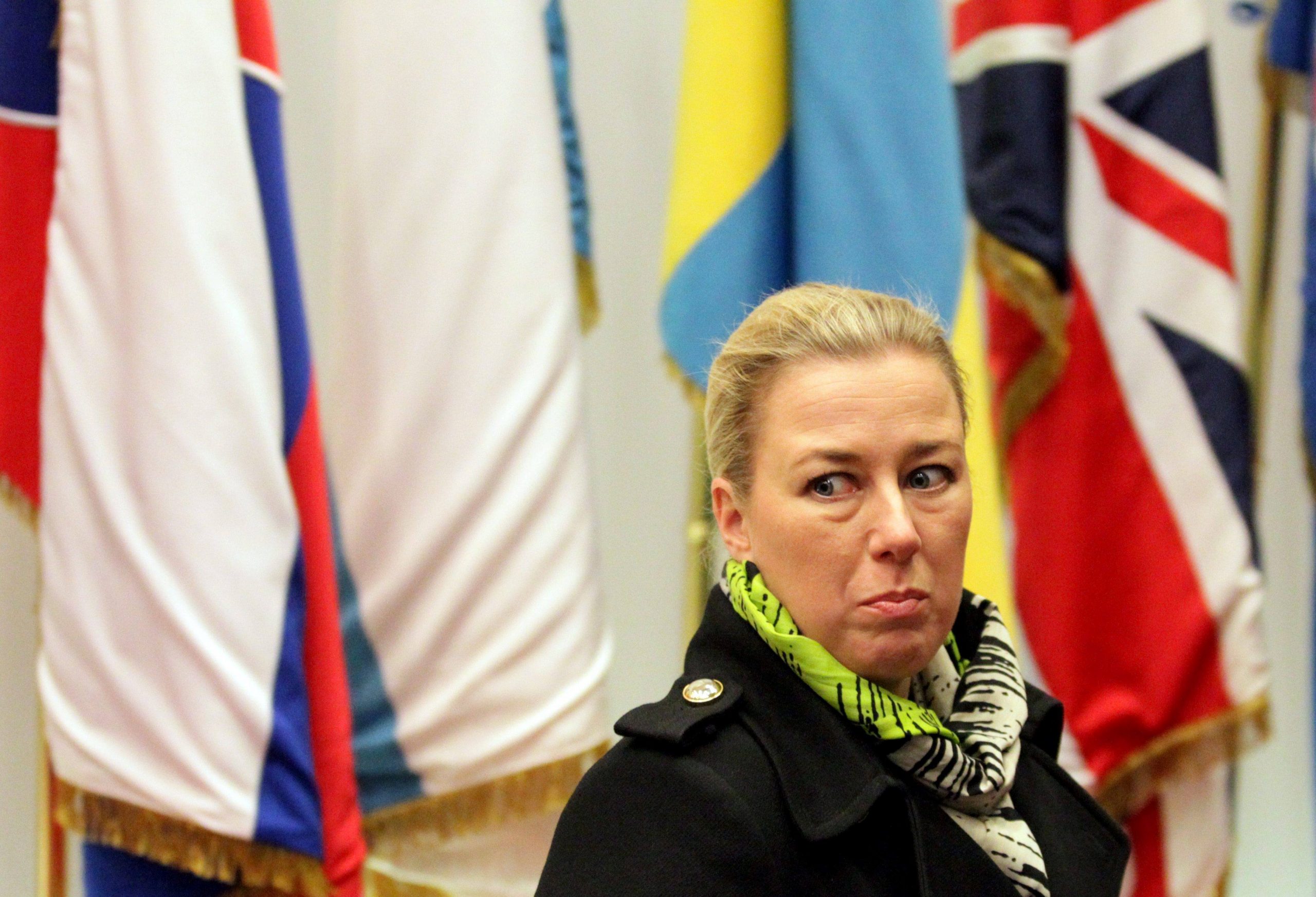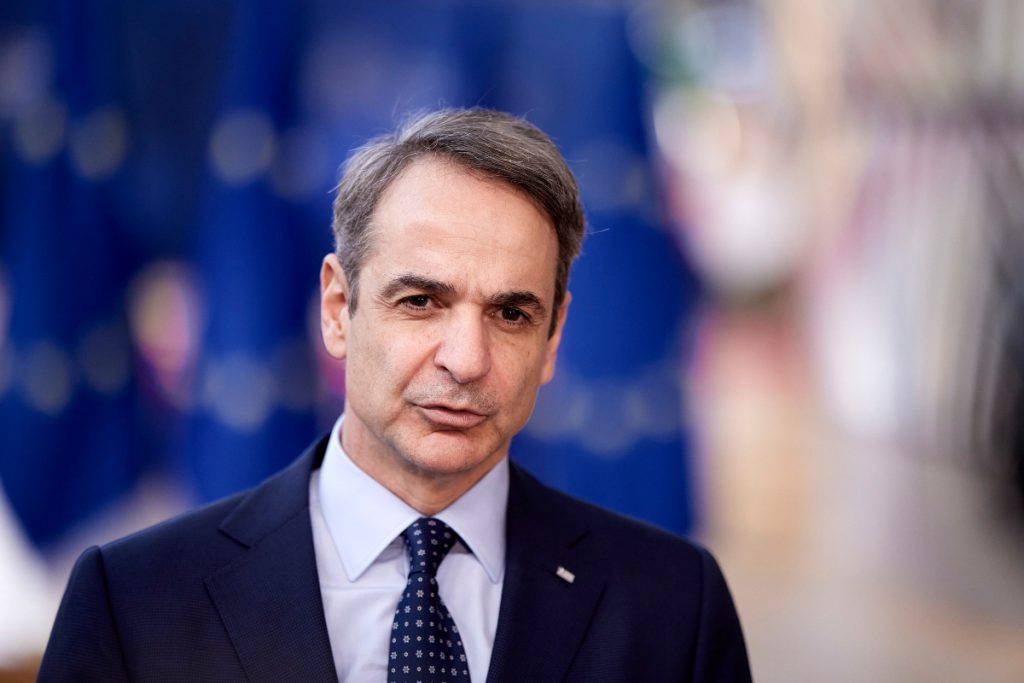EU Commissioner for International Partnerships, Jutta Urpilainen, discusses the Union’s emphasis on defending democracy in all its foreign initiatives, climate change, a renewed interest in the Sahel region and even the past economic woes that plagued Greece.
by Maria Vasileiou
Ta Nea
Democracy is backsliding in the EU. A report by the Secretary General of the Council of Europe has highlighted the problems. The Commission’s long-awaited legislation to protect democracy has yet to be introduced. At the same time, there is increasing concern about Chinese and Russian interference in European elections. Can European citizens look forward to democracy receiving the protection it needs?
Defending democracy is clearly an urgent need in the current geopolitical context. It is also part of the EU’s DNA. I believe that the key to promoting and strengthening democracy is to focus on its basic promises: equality and trust. Under my portfolio, we have put considerable emphasis on fighting inequalities through investing in education and empowering youth. We also provide substantial support to democratic governance and to building institutions which people can trust. The EU is actively using its soft power to defend democracy, especially online; as the world’s largest internal market, the legislation we pass can become the international standard.
We recently saw new members added to the BRICS. Does the EU’s Global Gateway strategy seek to strengthen Europe’s geostrategic position and alliances, or has Europe “woken up” a little too late when it comes to dealing with geopolitical competition? What would you like to see the EU do over the next few years to strengthen its geopolitical role against the backdrop of Russia’s war in Ukraine?
The war is on European soil, but the crisis is global. The EU has not turned its back on the rest of the world. If we look at the facts, in Africa, for example, we remain the continent’s biggest partner in trade, investments and aid. During the pandemic, we created the Team Europe approach. This means that the 300-billion-euro Global Gateway investment strategy is delivered as Team Europe, pooling resources and expertise from EU institutions, member states and development finance institutions in order to facilitate truly transformational projects. Another novelty of Global Gateway is its partnering with the private sector. Aid alone is not enough to achieve sustainable development. With Global Gateway, we want to create an enabling environment for private investments. Global Gateway’s impact is geared toward the long term, but it is already delivering. We are implementing around 90 flagship projects in 2023.
A few months ago, you announced an aid package to Niger, one of the countries in the Sahel region that has since fallen into the hands of military juntas. How can the EU best safeguard its interests and objectives in the Global South, and how can you ensure that European development assistance reaches the right recipients?
The EU engages in political dialog with partner countries and supports reforms. We follow closely the implementation of our projects and can freeze aid when circumstances demand it. The situation in Niger is extremely worrisome. Once news of the coup broke, the EU immediately suspended its budget support and security cooperation activities there. In fragile contexts, where we can no longer cooperate with the authorities, we have the option of bypassing them and redirecting aid through civil society organizations, who can reach vulnerable populations directly.
The EU is affected by climate change. We saw the fires in the European south, and especially in Greece. What can be done to strengthen the preservation of forests and the response to natural disasters in general at the European level, beyond the provision of aid from the EU’s civil protection mechanism? Is the EU doing enough for climate funding?
Let me express my deepest condolences to the victims of the recent natural disasters in Greece. While the primary responsibility for risk management lies with the member states, the EU actively supports them through several policies, tools, financing mechanisms and the EU Civil Protection Mechanism. During this Commission’s mandate, we have been systematically gearing all our policies toward accelerating the green transition. Team Europe is the largest provider of public climate finance, accounting for about a third of the global finance with more than €23 billion per year. The EU is doing its fair share, but we need to rally the global community to follow our example. Shared challenges can only be tackled together.
You were Finland’s finance minister during the economic crisis, when your country adopted a tough stance toward Greece. In retrospect, how would you assess that stance in relation to Greece’s subsequent course? Also, how do you think the EU should conduct its economic governance review vis-a-vis the financial resources needed for the digital and green transition?
As the Finnish Finance Minister, my job was to represent my government’s position and do all I could to stop the distrust from spreading. Greece has come a long way. I applaud the tenacity of the Greek people. Indeed, our Union is heading toward an important discussion about the economy. We must factor in rebuilding Ukraine, which will demand significant resources. I don’t want to rule out any solution at this point. What is very important now is that member states like Greece actively engage in the debate. How does Greece think the EU could best ensure healthy public finances while stepping up investment in the twin transition?



